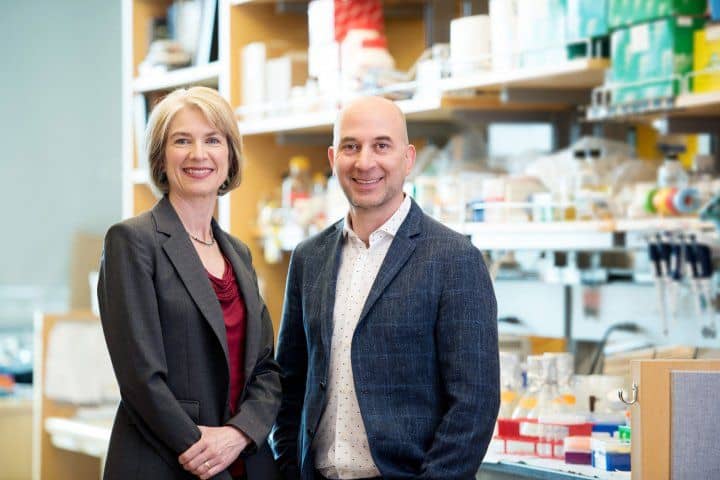
GlaxoSmithKline’s research chief Hal Barron is deepening its investment in cutting-edge science via a new CRISPR gene-editing alliance with the University of California.
The university’s Laboratory of Genomics Research (LGR) was founded by Professor Jennifer Doudna, famous as one of the co-discoverers of gene-editing technology CRISPR, and Professor Jonathan Weissman, University of California San Francisco (UCSF), also a pioneer of CRISPR screening technology.
The LGR will receive up to $67m over five years to fund facilities for 24 full-time university employees paid for by GSK, plus up to 14 full-time GSK employees.
The new joint venture is part of Barron’s drive to bring GSK up to speed with the most groundbreaking science and boost its R&D productivity, areas where the company has lagged behind industry leaders in recent years.
The LGR is a hybrid model, and brings industrial and academic researchers together under a single roof to work on projects both together and independently. These research projects will be focused on technologies, new drug targets and biological mechanisms that will foster both academic basic science and industrial advances towards new drugs.
Dr Barron said: “Technology is key to our innovation strategy at GSK, and CRISPR is one of the most important technologies of our time. With the expertise of Jennifer and Jonathan helping to steer the LGR, I am confident the lab will significantly advance our scientific understanding of the relationship between genes and disease to help find better medicines faster.”
The research will focus on immunology, oncology and neuroscience, and the lab will be based near the UCSF Mission Bay campus in San Francisco.
GSK’s artificial intelligence and machine learning group will also be involved in building the necessary computational pipelines to analyse all the data. The LGR aims to automate existing CRISPR approaches so that this work can be done at scale.
The partners say the ultimate goal is to deepen understanding of genetics and discover new targets, and to create next generation tech that will become future standard practice for the pharmaceutical industry.

CRISPR pioneers Jennifer Doudna and Jonathan Weissman (Barbara Ries photo courtesy of UCSF)
The collaboration will be governed by a joint steering committee, with further joint sub-committees covering patents, scientific and project management. Doudna and Weissman will be members of the steering committee, together with GSK’s new head of functional genomics, Chris Miller, who just joined GSK from AbbVie. This builds on the work of the Innovative Genomics Institute — a separate UC Berkeley/UCSF non-profit research centre co-directed by Doudna and Weissman – whose mission is to use CRISPR to improve public health.
The collaboration consolidates GSK’s focus on genetics, having signed a collaboration consumer genetic testing and research firm 23andMe a year ago.
Like many of its competitors, GSK is testing out the use of artificial intelligence and machine learning to find links between genetic variants and disease, with the hope of finding patients who are most likely to benefit from targeted medicines. A similar long-term partnership in functional genomics was unveiled by AstraZeneca with Cancer Research UK in December.
While these collaborations are focused primarily on the use of CRISPR in drug discovery, its use as a therapeutic agent is also being explored. The first ever FDA-approved clinical trial of an in vivo CRISPR-based therapy is expected to get under way very soon; Editas and Allergan plan to begin the trial of their EDIT-101 for the treatment of rare eye disease Leber congenital amaurosis 10 (LCA10) in the second half of this year, enrolling 10-20 patients in the U.S. and Europe.




